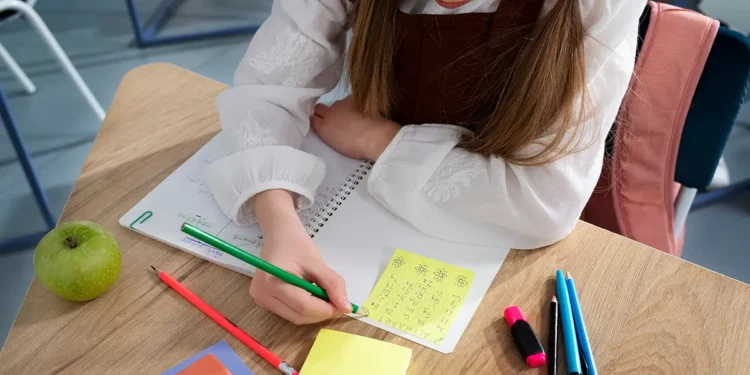Preparing your child for their first day of school is a significant milestone in their life and can be both exciting and nerve-wracking for both you and them. As children spend a significant amount of their young lives in school, a smooth transition is vital for a positive educational experience emotionally, socially, and academically.
Establish A Routine
Kids appreciate predictability, so one of the most important aspects of preparing your child for school is to establish a consistent daily routine. This includes regular wake-up times, meal schedules, and bedtime rituals. This helps children feel secure and builds a sense of wellbeing, which can be reassuring as they face new experiences.
Visit The School
Starting school is exciting, but the reality of a new place full of strangers can be intimidating. So, familiarise your child with their new school by taking them on a visit before the first day. Explore the school grounds, show them their classroom, and meet the teachers if possible. This can help reduce anxiety and make the school environment seem less overwhelming.
Encourage Independence
Teach your child age-appropriate self-help skills, such as dressing themselves, using the toilet, and washing their hands. Independence in these basic tasks will boost your child’s confidence and make them feel more capable when they start school.
Make Friends
Social skills are crucial for a successful school experience. Arrange playdates with other children to help your child practise sharing, taking turns, and resolving conflicts. This will give them a head start in forming friendships and interacting positively with their classmates; they may even forge a few bonds before the school year starts.
Read Together
Reading is one of the best ways to prepare your child for school. Read to them regularly and encourage them to ask questions and engage with the story. This not only improves their language skills but also fosters a love for learning and curiosity about the world.
Make Learning Fun
Make clear to your little one that learning doesn’t have to be a chore by exposing them to various educational activities and experiences. Visit museums, zoos, and parks, and engage in hands-on learning activities at home. Encourage their natural curiosity and explore their interests.
Develop Fine Motor Skills
Fine motor skills are essential for activities like writing and drawing, which your child will encounter in school. Provide opportunities for your child to practice these skills through activities like colouring, cutting, and playing with Lego blocks.

Build Confidence
Boost your child’s self-esteem by praising their efforts and accomplishments, no matter how small. Encourage them to try new things and celebrate their successes. After all, a confident child is more likely to approach school with a positive attitude.
Be A Role Model
Children often look up to their parents as role models. Show enthusiasm for learning and emphasise the value of education in your own life. Demonstrate good communication, problem-solving, and conflict resolution skills, as these are also important for school (and life) success.
Discuss Expectations
Talk to your child about what to expect at school. Explain that they will be learning, making new friends, and having fun. Address any concerns they might have and reassure them that you’ll always be there to support them.
Get Involved
Stay actively involved in your child’s education by attending parent-teacher meetings, volunteering at school events, and maintaining open communication with their teachers. This shows your child that you are interested in their school life and encourages their own engagement.
Relax
As a parent, it’s natural to feel emotional about your child starting school but try to remain calm and positive in their presence. Your attitude can influence their perception of school and their own emotions about it.










